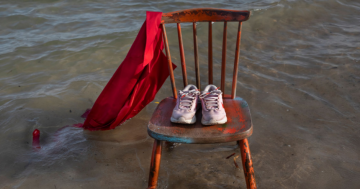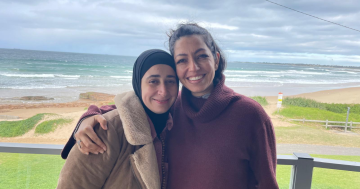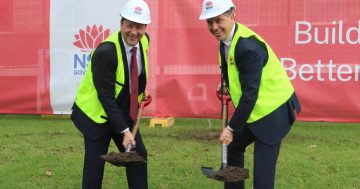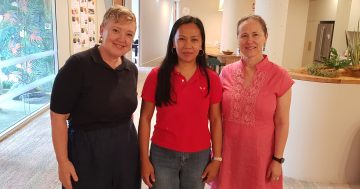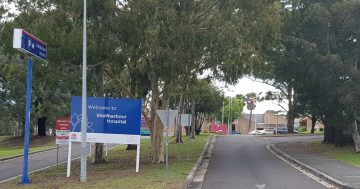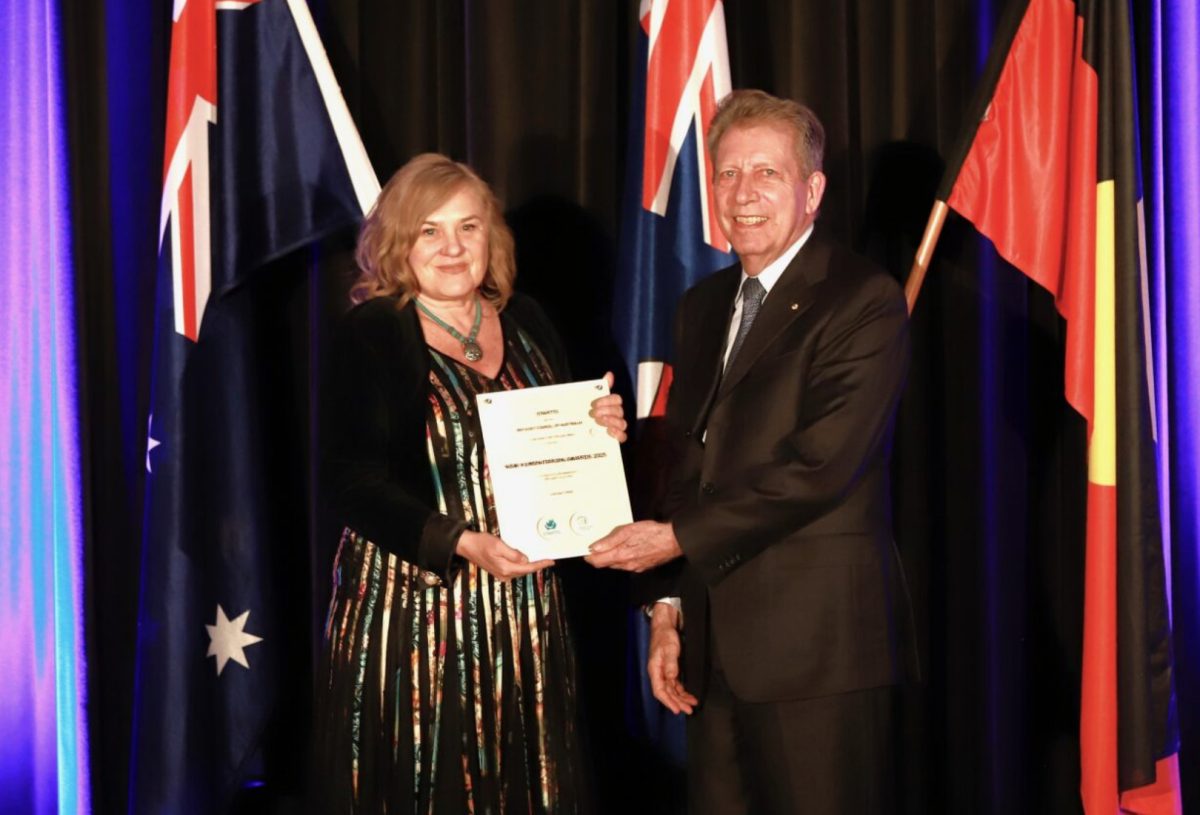
Leissa West receiving her Humanitarian Award. Photo: Supplied.
Illawarra health leader Leissa West was awarded the 2025 NSW Humanitarian Award for outstanding achievement in refugee support in June, honouring her decades of tireless advocacy and groundbreaking work in refugee health.
With nearly 40 years in the health equity space, Leissa has been instrumental in establishing critical support services for refugees since 2002.
Drawing from her family’s humanitarian migration experience after World War II, she has dedicated her career to helping vulnerable newcomers navigate complex healthcare systems, from establishing trauma-informed clinics to co-designing maternity care with former refugees.
As Multicultural and Refugee Health Services manager at Illawarra Shoalhaven Local Health District (ISLHD), she said the award was recognition for the work by her team.
“Not being able to speak the language, not being able to understand processes, not even knowing how to navigate basic medical care were really big issues for my family,” she said.
“Despite the fact there are so many more supports for refugee families and individuals now, the struggle is the same.”
Leissa said she had seen refugees arrive after experiencing immediate trauma or enduring years – sometimes decades – of conflict.
“As they arrive, they bring these experiences with them and no amount of external support takes that away from the individual,” she said.
“People are trying hard to fit within the margins we set in this society. I can see … how complex that can be for many people.
“That’s what started it off for me.”
Leissa’s groundbreaking work includes research into reproductive and sexual healthcare access in refugee settings in Africa, co-founding the Illawarra Refugee Issues Forum, developing consumer-led cancer care programs for Burmese and Arabic-speaking communities, and establishing pioneering maternity care health initiatives for refugee women.
“They’ve come with nothing, and been told to leave everything – and sometimes everyone – behind,” she said.
“Yet they arrive with enormous resilience and a profound capacity to move forward.
“The majority work so hard just to make the best of their lives.”
Leissa said her work with refugees began while managing a family planning clinic in Western Sydney.
She said refugee clients weren’t accessing quality, socially responsive health care that assisted them in feeling comfortable and safe, so she set up a reproductive and sexual health refugee clinic, with the NSW Refugee Health Service providing a doctor, while she supplied nurses.
When she moved to the Illawarra to manage the multicultural health services, she had just one refugee health nurse for the entire health district.
“We needed to find a way to adapt to meeting these needs of our new arrivals because they were coming thick and fast, particularly during 2016 with the Syrian refugee crisis,” Leissa said.
“We were the third-highest local health district to intake Syrian new arrivals.”
Part of that was working with other agencies, resulting in co-founding Illawarra Refugee Issues Forum.
“Illawarra Refugee Issues Forum is an environment where all of the stakeholders working in this space come together to share and understand who we are, what we’re doing, and how we can collaborate to really efficiently meet the needs of our refugee communities and patients,” Leissa said.
As a result of those strong networks, the Federal Government announced the Illawarra Shoalhaven as one of six priority settlement sites for the women at risk visa category, which focused on women with trauma levels higher than other refugees. The forum still runs regularly today.
In 2014, Leissa worked with Illawarra cancer survivor Nyan Thit Tieu to start the Sisters’ Cancer Support Group.
“This tiny Burmese woman who has just survived breast cancer and the whole treatment journey came and said, ‘I’ve gone through this journey, and I can tell you as a woman of colour we have nothing that provides us with any support throughout the journey and after’,” she said.
“She said, ‘I’ve been the most isolated I have been in my entire life going through this journey’.”
Leissa supported Thit to start the group and has now received federal funding to develop healthcare information resources for cancer survivors, along with cervical, breast and bowel cancer screening for Burmese and Arabic-speaking communities.
In 2015, Leissa presented to the Australian Chief Medical Officer on bowel cancer screening for culturally and linguistically diverse communities and later worked with the Department of Health to help shape a more culturally appropriate second iteration for the faecal occult blood test (FOBT).
“It’s beautiful just to watch these communities and see a light switch on,” she said.
“We often overestimate how accessible our resources are compared to people who don’t speak English as a first language.”
She said maternity services faced similar challenges, prompting her to introduce antenatal education and hospital tours for refugee women after noticing barriers to accessing care and information in their own language.
In addition, she helped co-design a comprehensive training package with refugee women to improve maternity ward experiences, now integrated into the University of Wollongong’s nursing curriculum.
However, Leissa said none of what she’d achieved would have been possible without her team, who were “passionate and understand the journey of our vulnerable communities”.
“Our work, really, from here on, is to continue to find ways to empower our health service personnel to make the changes they need to make to create sustainability within their space,” she said.
“That’s my next piece of work.
“I’m 61 years old this year and I’d like to think that this would be my swansong, but my passion for work will never stop.”
The awards were presented by the NSW Service for the Treatment and Rehabilitation of Torture and Trauma Survivors (STARTTS) and the Refugee Council of Australia (RCOA).








